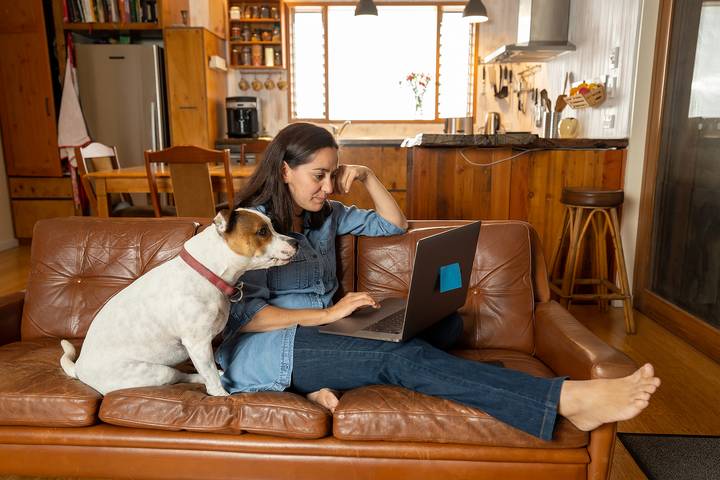A Homeowner’s Guide to Raising Your First Dog

Welcoming a new dog into your home can be one of the most rewarding experiences in life. This little bundle of joy brings love, warmth, companionship, and excitement. However, with that joy comes responsibility. Being a dog owner means you commit to your furry friend’s well-being and must meet their needs. Whether you want a playful puppy or are adopting an older dog, starting this journey with the right knowledge and preparation is crucial.
Raising your first dog might feel overwhelming, but it’s an adventure filled with learning and growth for both you and your new pet. Every detail matters for your dog’s happiness and health, from choosing the right food to creating a comfortable living space.
Let’s look at integrating a dog into your life while providing the best care possible.
Choosing the Right Dog
Different breeds have unique traits and needs. Research breeds to find one that matches your lifestyle. Think about energy levels, grooming needs, and personality. A small apartment may not best fit a high-energy dog, while larger breeds may require enough space to move around.
Also, consider your household. Families may enjoy active puppies, while older adults might prefer a calmer dog. Visiting shelters can help you see the personalities of available dogs and find a good match. This choice can lay the groundwork for a happy relationship.
Dog Food Matters
Good nutrition is vital for your dog’s health. Picking the right food sets the stage for their growth and energy. Consider options like Acana dog food, which has quality ingredients and balanced recipes. Acana suits many dog breeds and provides rich nutrition from whole meats and fresh produce.
Make feeding your dog a daily routine. This not only satisfies their hunger but also strengthens your bond with them. Dogs need consistency, so choosing high-quality food greatly supports their well-being and energy.
Creating a Safe Environment
Before bringing in your new friend, you must dog-proof your home. Remove hazards like toxic plants, small objects, and cables that dogs might chew. Set up special areas for your dog, including a cozy bed and easy access to food and water.
Having a secure space is good for both you and your dog. When dogs know their area and have safe spots to relax, they feel less stressed. You can use baby gates to keep them in certain rooms, especially as they get used to your home.
Essential Supplies
To make your transition smoother, gather the right supplies for your dog. You will need a sturdy leash, collar, and identification tags. Choose toys that keep your dog engaged, like fun chew toys and interactive games. These help stimulate both their mind and body.
Don’t forget grooming tools. Get a brush, nail clippers, and a dog shampoo. These supplies are essential for keeping your pet healthy and happy. Regular grooming helps maintain a clean and contented dog.
Training Basics
Training helps you communicate effectively with your dog. Start with a routine so your dog understands what you expect. Focus on basic commands like “sit,” “stay,” and “come,” and reward them positively. Be patient; training takes time.
Socialization is also crucial. Gradually introduce your dog to different people, animals, and environments. This helps shape their behaviour and builds confidence. Exposing them to various situations safely prepares them for the outside world.
Exercise and Playtime
Every dog requires physical activity, based on their energy level. Daily walks and playtime promote a healthy lifestyle, keeping your dog fit and mentally active. Make these activities part of your routine to strengthen your bond. Play fetch or tug-of-war to enjoy quality time together.
Take your dog to dog parks for socialization. It allows them to meet other pets and interact freely. These outings provide a different environment that can benefit their emotional health.
Health and Wellness
Regular visits to the vet are important for keeping your dog healthy. Vaccinations, flea control, and check-ups help ensure their well-being. Catching health issues early can prevent more serious problems later.
Learn to recognize signs of discomfort or illness. This knowledge helps you address potential issues. Consider getting pet insurance to manage unexpected costs, so you can prioritize your dog’s health without stress.
Owning a dog brings joy and responsibility. Understanding their needs and creating a loving home make a big difference. A dog becomes a valued family member, offering loyalty and companionship that enhance your life.



